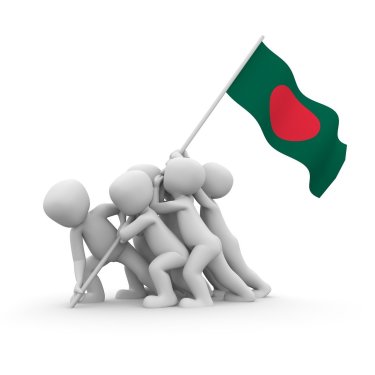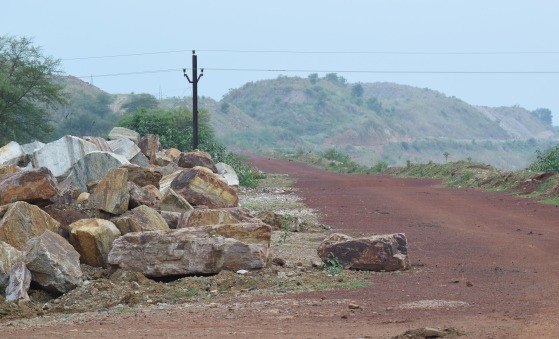
The Bangladesh Hindu Buddhist Christian Unity Council (BHBCUC) is quite positive that the interim government would not sideline the issues that the minorities are facing for decades.
The Council had submitted their seven-point demand to the Sheikh Hasina government in 2015, a significant move to address long-standing issues faced by religious and ethnic minorities in Bangladesh, including Adibashi (indigenous) people. This comprehensive seven-point demand, was presented at a historic gathering at Suhrawardy Uddyan in Dhaka, aimed to secure equal rights, representation, and dignity for minority communities who have faced discrimination and marginalization for decades.
Rana Das Gupta, General Secretary of Bangladesh Hindu Buddhist Christian Unity Council told Christian Today that though Hasina’s election manifesto both in 2018 and 2024 included the demands of the BHBCUC, “Hasina failed to keep her pledge in 2018.”
Historical Context
The demands are rooted in the complex history of Bangladesh, dating back to its independence in 1971. Despite the significant contributions of minority communities during the liberation war, their representation and rights have steadily eroded over the years. The press release highlights a stark statistic: the minority population in Bangladesh has declined from 29.7% in 1947 to just 9.7% in 2011.
Stating the reason for the decline in Hindu population, Gupta said, “The minority population had already come down to 20% just before 1971 which was majorly due to persecution done against the Hindu community for the first 23 years within East Pakistan. The Pakistani government that came to power, adopted ethnic cleansing policy – killing, arson, rape and encroachment of property,” said Gupta.
“This especially indicates the decline in the Hindu population,” said Gupta, highlighting that “the Buddhist and the Christian community then were 0.5% and 0.6% respectively and they continue to be the same in 2011.”
The Seven-Point Demand
1. Empowerment and Representation
The first demand calls for substantial improvements in political representation of both the religious and ethnic minorities. Key points include:
- Reserving 60 seats in the National Parliament for minorities, based on their 20% population rate in 1970.
- Ensuring 20% representation in administration, foreign affairs, police, armed forces, and constitutional posts.
- Mandating 20% representation in all political parties from local to central committees.
This demand aimed to address the then underrepresentation, noting that only 17 out of 300 MPs and 1 out of 50 selected female members belonged to the minority communities.
2. Elimination of Constitutional Discrimination
The second point focuses on constitutional reforms:
- Repealing Article 2A, which is seen as contradictory to the principle of secularism enshrined in Article 12.
- Recognizing the rights and identity of Adibashi people.
- Adding constitutional safeguards to protect minority rights.
These changes aim to realign the constitution with its original secular spirit and provide stronger protections for minority communities.
3. Equal Rights and Dignity
This demand includes several institutional changes:
- Establishing a separate Minority Ministry for development and betterment of minorities.
- Allocating an exclusive budget for minority development.
- Setting up a National Minority Commission to protect minority human rights.
- Ensuring representation of all religions in state ceremonies.
- Creating a Parliamentary Commission to investigate and address the declining minority population.
These measures are designed to provide institutional support and recognition for minority communities.
4. Enactment and Implementation of Minority-Friendly Laws
The fourth point calls for legal reforms and implementations:
- Speedy implementation of the Chittagong Hill Tracts (CHT) Peace Accord.
- Establishing a Land Commission for Adibashi people in the plains.
- Implementing existing laws like the Hindu Marriage Registration Act and the Vested Property Return Act.
- Enacting a Debottor Property Act.
- Addressing discrimination against vulnerable groups like Harijans, Dalits, Rishis, and Tea Garden workers.
These legal measures aim to protect minority rights and address historical injustices.
5. Elimination of Discrimination in the Education Sector
This demand focuses on educational reforms:
- Ensuring equal representation of all religious groups in textbooks.
- Appointing teachers from minority religions for religious education in all schools.
- Establishing public religious educational institutions for all minority religions.
These changes aim to promote cultural diversity and religious equality in education.
6. Overcoming the Culture of Impunity
The sixth point addresses the issue of violence against minorities:
- Enacting a Minority Protection Act to ensure security and safety.
- Implementing existing laws like the Speedy Trial Act and Anti-Terrorism Act with enhanced punishments for crimes against minorities.
- Implementing recommendations of the Sahabuddin Commission on religious violence.
- Ensuring accountability of local representatives and law enforcement in preventing communal violence.
This demand seeks to address the persistent issue of violence and discrimination against minority communities.
7. Freeing Bangladesh from Communalism, Fanaticism, and Terrorism
The final point calls for state responsibility in:
- Preventing all forms of communalism, fanaticism, racism, and terrorism.
- Ensuring the country's advancement based on the principles of the Liberation War.
This demand aims to address the root causes of discrimination and violence against minorities.
The Way Forward
The press release concludes with a stark warning: "Non-implementation of all these demands would be forcing the Religious and Ethnic minorities including Adibashi people to think otherwise about their future." This underscores the urgency and importance that minority groups attach to these demands.
“All the issues that we have raised are important issues,” said Gupta “but there are these three most important ones: including the demand to enact Minority Protection Act; the demand to set up a separate National Minority Commission for protecting the Human Rights of Religious and Ethnic minorities including Adibashi people; To set up a separate Minority Ministry for the development and betterment of the Religious and Ethnic minorities including Adibashi people living in the plain land.
“I will say that the Minority Protection Act is extremely necessary out of the three,” said Gupta emphasizing the grave danger to the life and property of the minority community.
As Bangladesh continues to grapple with issues of equality, representation, and minority rights, these seven demands provide a roadmap for potential reforms. The response to these demands from the interim government, and broader society will play a crucial role in shaping the future of minority communities in Bangladesh and the country's progress towards a more inclusive democracy.




